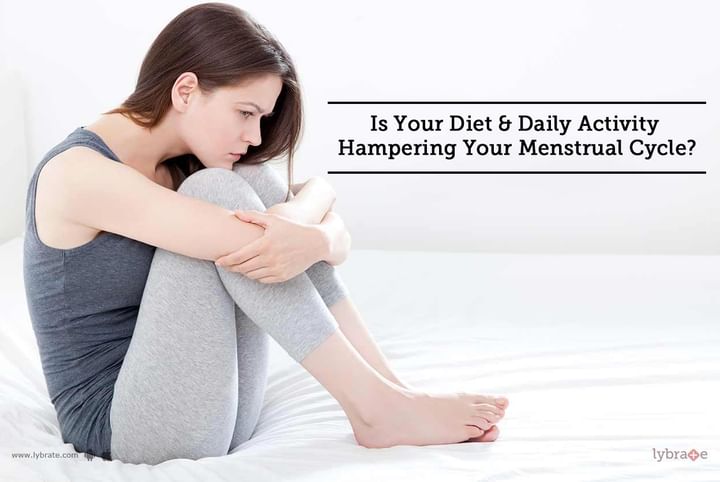Is Your Diet & Daily Activity Hampering Your Menstrual Cycle?
Most women are in tune with the frequency of their menstrual cycle, how heavy they are, and how inconvenient they can be. Necessary for reproduction and pregnancy, menstrual cycle typically lasts for about 24-35days – an average cycle for most women being 28days. If the number of days between your menstrual cycle is less than 21 and last longer than 8, or if you have not had your periods for three consecutive months for reasons other than menopause or pregnancy, then the cycle is considered irregular.
It is known that hormones like testosterone, progesterone and oestrogen regulate the timing of your periods i.e. when the uterus sheds its lining. Further studies show that your diet and exercise affects these hormones, and subsequently, your monthly periods.
The Link between Diet and Rampant Periods -
• Dietary fibre found in fruits, vegetables, and whole grains sure has several health benefits. However, recent studies suggest that this type of a diet is linked with a reduced concentration of the hormone oestrogen – a key factor that contributes to abnormal or irregular periods– and is ten times more likely to put you at risk of anovulatory menstruation, where the ovary fails to release an egg.
• A low-fat diet can also throw your monthly periods off whack. Consuming an appropriate amount of fats is important to sustain hormonal balance. Insufficient intake of essential nutrients and fats like omega-3 fatty acid, found in nuts, seeds, and fatty fishes can disrupt your menstruation cycle, causing irregular or heavy bleeding.
• Consuming alcohol, even in small amounts, can trigger menstrual irregularities. Alcohol ingestion at the wrong hour may disrupt the balance critical to maintaining female reproductive hormonal cycles, subsequently leading to infertility. Alcohol may temporarily increase your testosterone and oestrogen levels – this may affect the normal functioning of your menstrual cycle.
The Link between Physical Inactivity and Irregular Periods
Girls, who do less physical activity and are obese are more prone to irregular periods.
- Lack of physical activity also adversely affects your menstrual cycle. Both oestrogen and progesterone are at their lowest during the whole length of the menstruation cycle, which makes many women feel less energetic and tired, especially when you are bleeding heavily.
- Having said that, you should engage in mild to moderate physical activities to keep your hormonal balance regulated, instead of ceasing all your exercises during periods. Regular exercising can ease PMS symptoms, elevate your mood, and combat painful menstruation.
Periods are a monthly affair. They are certainly painful for some, but if you follow a healthful diet and live an active life, chances are you might be able to live through those few days peacefully, without much discomfort and pain. However, do consult a gynaecologist if you continue to experience rampant or heavy flow during your monthly periods.



+1.svg)
